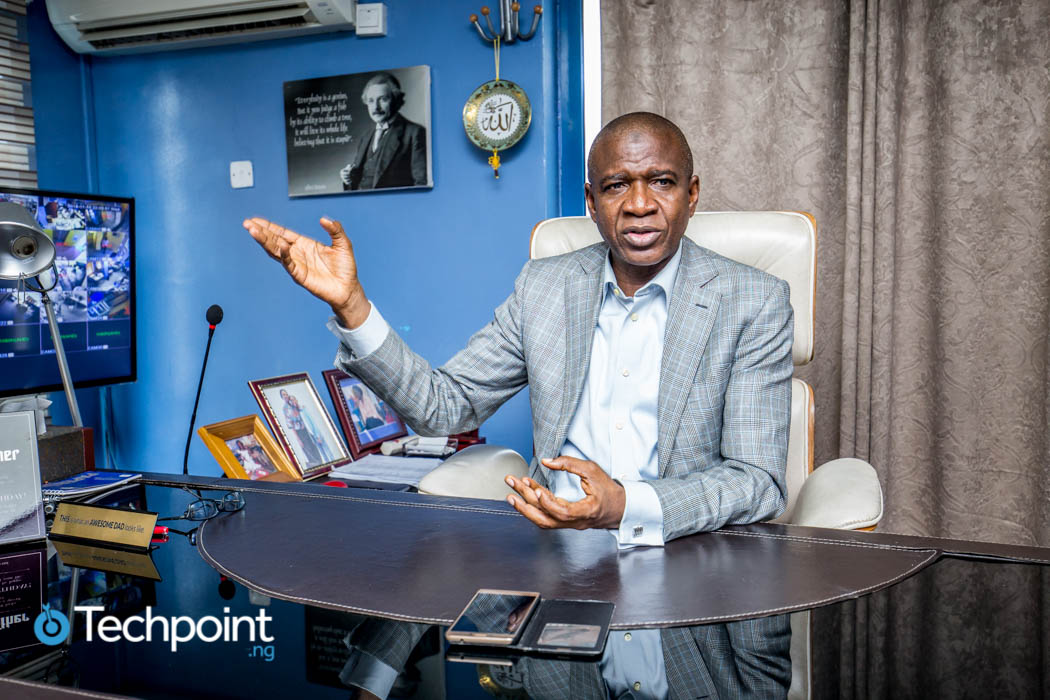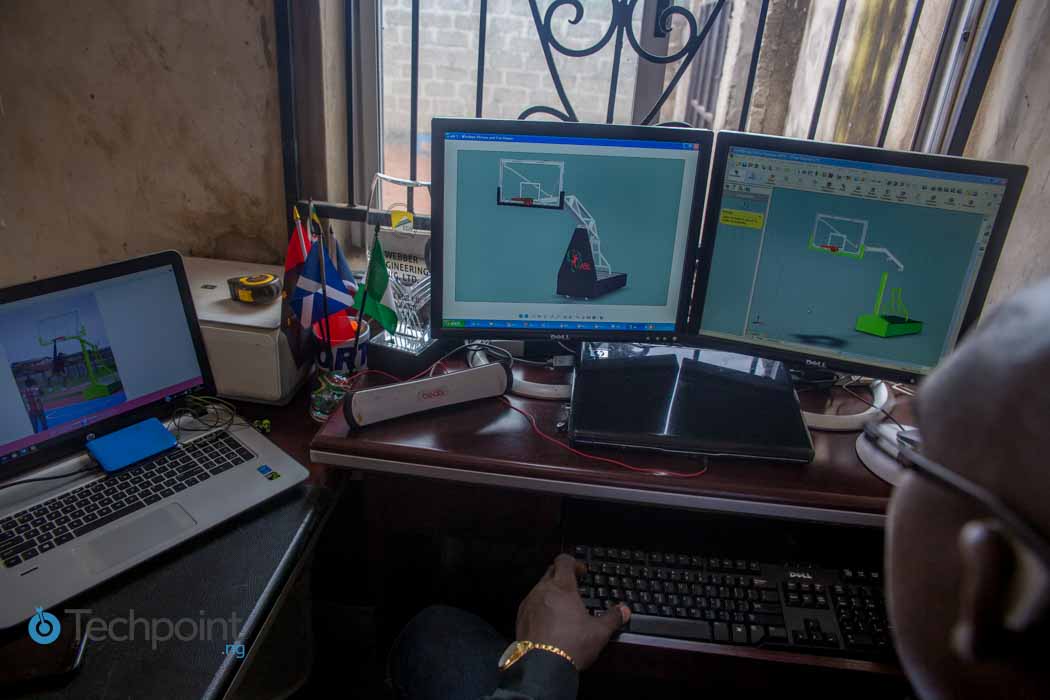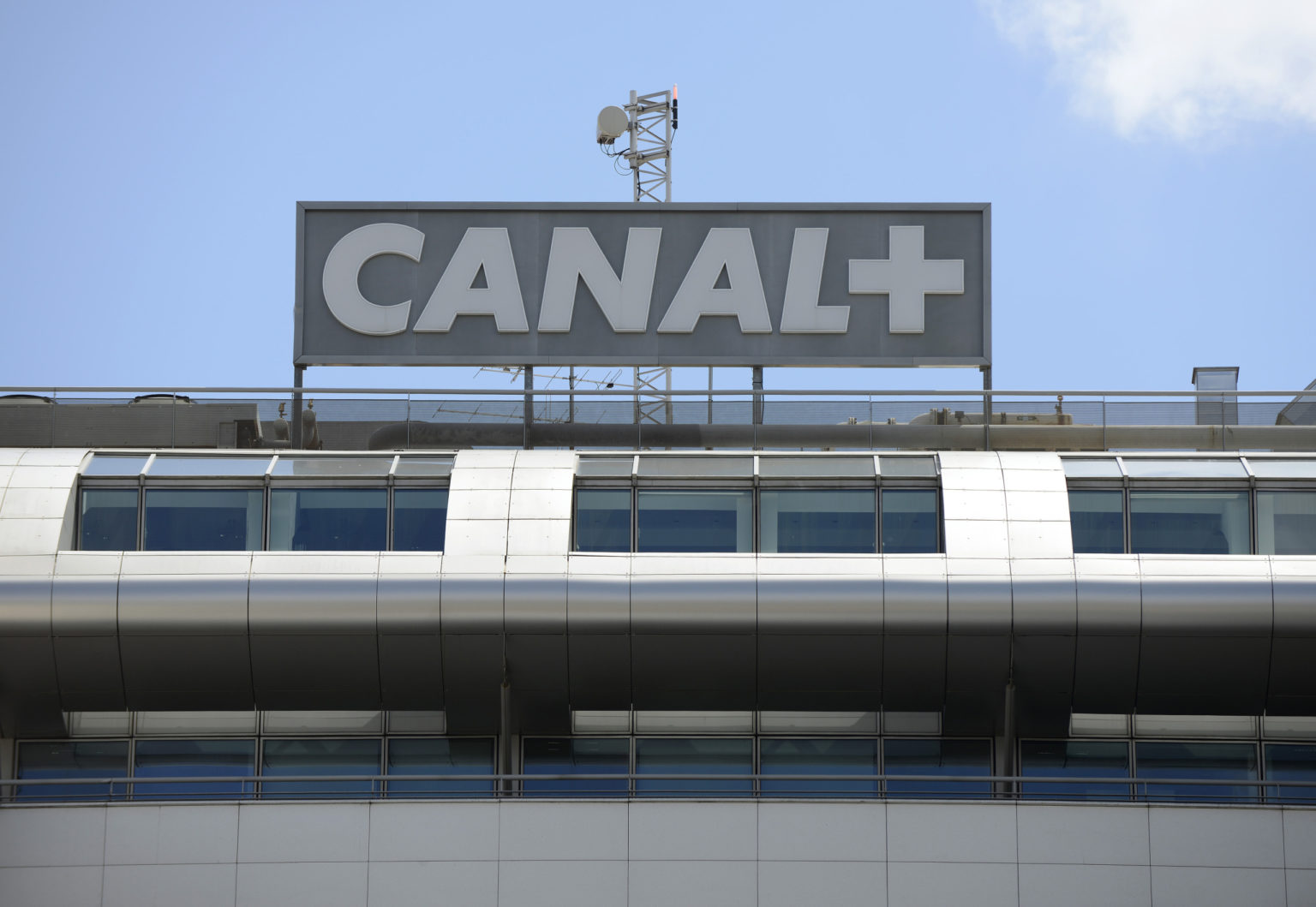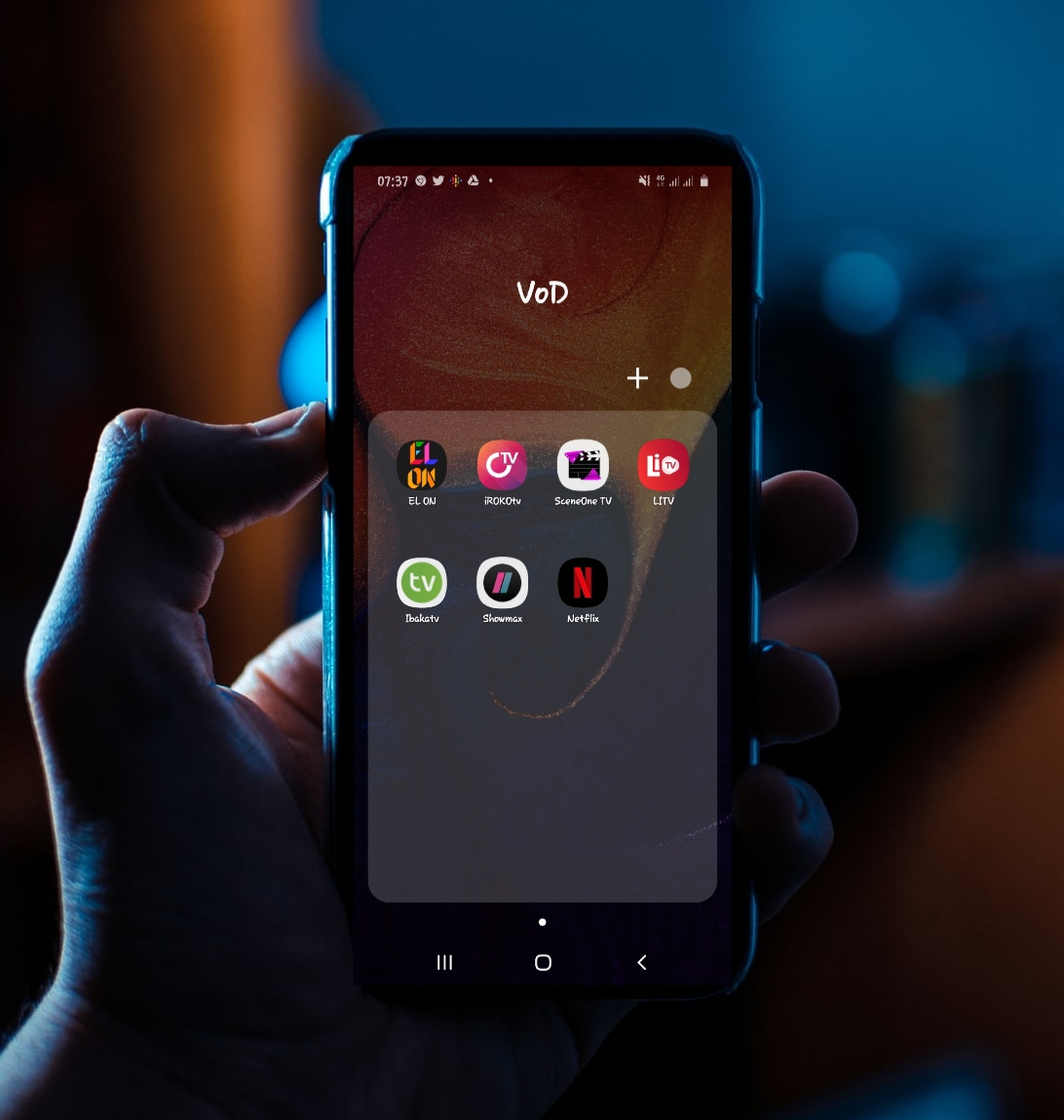On two occasions in May 2018 Kabir Shittu rode Nigeria’s “high-speed” rail from Abuja to Kaduna and back, he paid ₦950($2.6) for standard coach tickets instead of the ₦1,300($3.6) printed on it. He was not the only one.

Without any lobbying, bribery or pre-arrangement, passengers were paying different prices for the same ticket. What was the root cause of this price disparity?
According to multiple sources, there were ‘minor tickets’ in the Standard and VIP coaches of the train. There is no obvious reason why these tickets are minor as holders still get to ride regularly with passengers that paid standard value. But these ‘minor tickets’ and other irregularities are not new developments.
An earlier report in January had revealed bureaucracy, ticket hoarding and racketeering. Nearly 6 months down the line, not much has changed. Even though the ‘Why’ is a good place to start, the main question is how this corruption at the Nigeria Railway Corporation (NRC) can be plugged.
Technology seems like the obvious answer to this problem; an online portal and ticket booking system will regularise the presently messy system to a large extent.
In preparation for an assessment ride on the high-speed rail between Abuja and Kaduna, I had tried purchasing a ticket on the NRC’s website and met a brick wall.
Suggested Read: 18 months after, Nigeria’s “high-speed” rail is still functional with a few kinks
Even though the NRC supposedly has a ticket booking portal displayed on its website, the link is a non-functional dummy; I discovered this after multiple fruitless attempts to use it.

Considering this, the ticket racketeering reports do not seem far-fetched. A group of people are apparently benefiting from this ‘minor tickets’ scam so much so that more than 6 months after it was reported, it did not stop.

Join over 3,000 founders and investors
Give it a try, you can unsubscribe anytime. Privacy Policy.
Thankfully, in all these, the NRC is aware it needs a functional system and is being proactive about it; or is pretending to. A notice dated 30th of August 2017 on its website called for interested bidders to submit an Expression Of Intent (EOI) to build a secure e-ticketing system on an investment basis.
However, the eligibility criteria set for companies are too high and somewhat unrealistic. One of the criteria says that companies must have a “verifiable evidence of financial capability with an average annual turnover of not less than ₦1 billion ($2.8 million) in the last three years (2014, 2015, 2016).”
There are one too many core tech and ICT companies in Nigeria, but only a handful can boast of this revenue.
A questionable obstruction to progress
In recent years, the mass proliferation of technology and internet companies in Nigeria means that hundreds are born everyday spurred on by the somewhat low entry barrier. But in all this multitude, only seven are listed on the Nigerian Stock Exchange (NSE) under ICT. And only these 7 seemingly have an annual turnover in this range and can comfortably fulfil the listed criteria. What then happens to smaller ICT companies and tech startups?
This restriction would have made sense as a means of ensuring bidders have the capabilities to execute. However, the fact that tech startups and ICT companies not listed in the stock exchange have successfully undertaken massive projects in the past calls into question the legitimacy and relevance of the criteria.
SystemSpecs is a Nigerian fintech companies that is not listed by the NSE, but their Remita solution is used effectively for the payment and collections of funds on behalf of the Federal Government of Nigeria for the treasury single account (TSA).
Yellow Line Services is another example. In Nigeria’s first e-voting elections in Kaduna State, the ICT company was charged with the technology logistics and delivered excellently. They too are a young company not listed on the NSE.
When this is put into consideration, the whole criteria seems tinged with bureaucracy promoting an unhealthy monopoly that undermines and stifles the growth of budding Nigerian startups.
In 2017 when the train service kicked off, Payant Technologies, an e-payments startup based in Kaduna sent an EOI to the NRC before they even requested for it. And after not getting a reply, they sent another in August when the official request was made.
According to co-founder of Payant, Kabir Shittu, they offered to build the whole system and even provide hardware for printing physical tickets at stations, all free of charge.
“We intended to recoup cost from a revenue sharing formula, but we never heard back from them even after sending the EOI twice and reaching out multiple times,” Kabir says.
With the bar seemingly raised too high for capable hands; it is no wonder the NRC did not get a successful bidder -- if any at all -- in the time specified and had to extend till 31st of October 2017.
Calls to the NRC to determine if they got bidders during the period of the extension went unanswered and emails sent bounced back.

An unconfirmed report at the time said 12 companies had been selected from 1,000 bids received and will be further pruned to the final one. But the fact that the website did not still have a booking and payments processor at the time questioned the authenticity of this claim.
However, on July 2nd 2018, the Managing Director of the NRC, Fidet Okhiria reportedly confirmed that the corporation had signed a tender and indeed shortlisted 9 companies that are currently bidding to provide the service.
The chosen ones
According to the report, the companies qualified after an initial selection process are; Turn Around Engineering Limited, Secure ID Limited, Catamaran Nig Ltd, Soft Alliance and Resources Ltd, Nexant/Innovea Hub, Backbone Connectivity Network Nig Ltd. Focal point Integrated Services Limited, Euphoria Press Limited and First Index Project and Services Limited.
Most of these companies have verifiable digital footprints in the form of websites and social media presence, but some of them are too uncomfortably absent from the internet to be ‘competent ICT firms’.
From an observatory perspective, there is no evidence of an annual billion-naira revenue from any of these companies, but we have to take the NRC’s word on their qualification based on that criteria. Apart from 2 that included railway in their services description, there was no way to see “verifiable evidence of works of similar nature executed, including their value” and “verifiable evidence of relevant Projects undertaken in the Railway Sector” as strongly stipulated by the NRC.
Basically, there are seemingly not enough evident pointers that indicate the reported shortlisted companies can and has fulfilled the set criteria. A few do not even own websites; an odd thing for an ICT company.
An abnormal norm that can be ignored
Despite the fact that this rigid structuring is definitely one of the major reasons government ICT projects fail in Nigeria, it is not only restricted to ICT.
Suggested Read: Why government ICT projects in Nigeria fail
According to Richard (not real name), a civil servant and long term expert on government contracting, procurement and bidding, these contractual terms are the norm when dealing with any level of government.
Also, this problem is not unique to Nigeria. The U.S.A, oft regarded as the startup capital of the world has a long documented history of intentionally and unintentionally shunting startups off government contracts.
In 2014, Elon Musk’s SpaceX reportedly dragged the U.S. Air Force to court for not allowing it bid for contracts to build rockets; and they won. However, not all startups in America have the wherewithal of SpaceX to challenge the government, so yes, this is still a problem. And all these seem like reason enough to ignore this matter.
But considering Nigeria’s nascent technology service industry and the government’s seeming efforts to grow it, giving Nigerian startups leeway to participate in bidding and executing government ICT contracts makes economic sense.
Richard that I spoke with earlier agrees this is a good and inclusive idea, but honestly does not see it happening anytime in the future. Why? “Even you know. Bureaucracy and corruption,” he simply replies.
Bola Akindele, CEO of Courteville Business Solutions has a slightly different opinion. Even though he agrees some of these requirements and criteria are non-inclusive and rigid, he complains about the lone wolf nature of the typical Nigerian tech entrepreneur.

“There are so many individual operations that have just one or two people running them. Most do not have funds, social capital or structure but are trying to navigate the entrepreneurial journey. With these people, after a few years, what they probably still have is their ideas and possibly smarts,” he says.
Bola believes this solitary nature is a hindrance to network, resources and collaboration. This in turn makes startups unable to cohesively access necessary structures thereby making it nearly impossible to get government contracts.
SOS (Save Our Startups)
On the other hand, Bola Akindele tells a sad story of how Courteville was sabotaged by a government agency that was meant to be helping it.
“In 2008 we presented a tech solution on request to the ECOWAS secretariat in Abuja to fix cross-border vehicular traffic monitoring. We had the best solution and the stakeholders were in awe, it was a near done deal and they asked us to come back. A few government agencies then went behind our backs to hijack the contract with a promise of better execution. To cut a long story short, ten years down the line, nothing has been implemented.”
Apart from the aforementioned high policy and criteria barriers to entry, it is shocking that government agencies are also a physical hindrance for Nigerian startups. The world over, governments are an important factor for the growth or death of small businesses, Nigeria is no exception.
In Nigeria’s ₦7.298 trillion 2017 “Budget of Growth and Recovery”, the Ministry of Communication Technology got ₦18.7 billion.
As insufficient as this sum seemed for ICT development and growth, over ₦2.2 billion was earmarked by the Ministry for procurement that could have been easily handled by Nigerian ICT and tech startups. These monies will do wonders if injected into budding Nigerian startups through contracting.
NITDA should do more
Executive Orders 003 and 005 issued by the Federal Government of Nigeria are targeted at the promotion of local content in ICT.
Also, the National Information Technology Development Agency(NITDA) has always campaigned for the promotion of local ICT content in Nigeria.
A spokesperson of the agency recently advised Ministries, Departments and Agencies (MDAs) against employing the services of IT companies not registered with NTIDA for IT projects.
Suggested Read: NITDA demands to approve all public IT projects before they can be executed
This may sound counter-intuitive, but NITDA has a registration process for ICT Service providers and contractors for delivery of IT Services to MDAs. The guidelines (PDF) for this process show an amazing flexibility.
But how will this inclusion process be complete if ICT startups and SMEs are expected to present an annual ₦1 billion ($2.8 million) turnover to build an e-ticketing portal?
Bola is of the opinion that instead of worrying about trivialities like who is registered or not, NITDA should focus more on empowering these startups and how new technology can be better utilised in Nigeria.
Generally, yardsticks like manpower, capacity and taxation history would be more realistic than multi-million dollar annual turnovers for awarding government contracts to Nigerian startups. Maybe there is still hope.
In May, the Nigerian Senate passed the repeal and re-enactment of the Companies and Allied Matters Act (CAMA) to improve the ease of doing business in Nigeria, especially for small businesses. This new CAMA is tech savvy enough to allow the e-registration of businesses.
Hopefully with time, these bureaucratic contractual terms that are an antithesis to innovation will be reconsidered in it too.
But we do not have time; technology and ICT are largely based off and founded on fast changing innovation,. If the tech and ICT industries will ever be a reasonable mainstay of the Nigerian economy, rules around contracting government projects must be relaxed and the process decentralised as soon as possible.





















